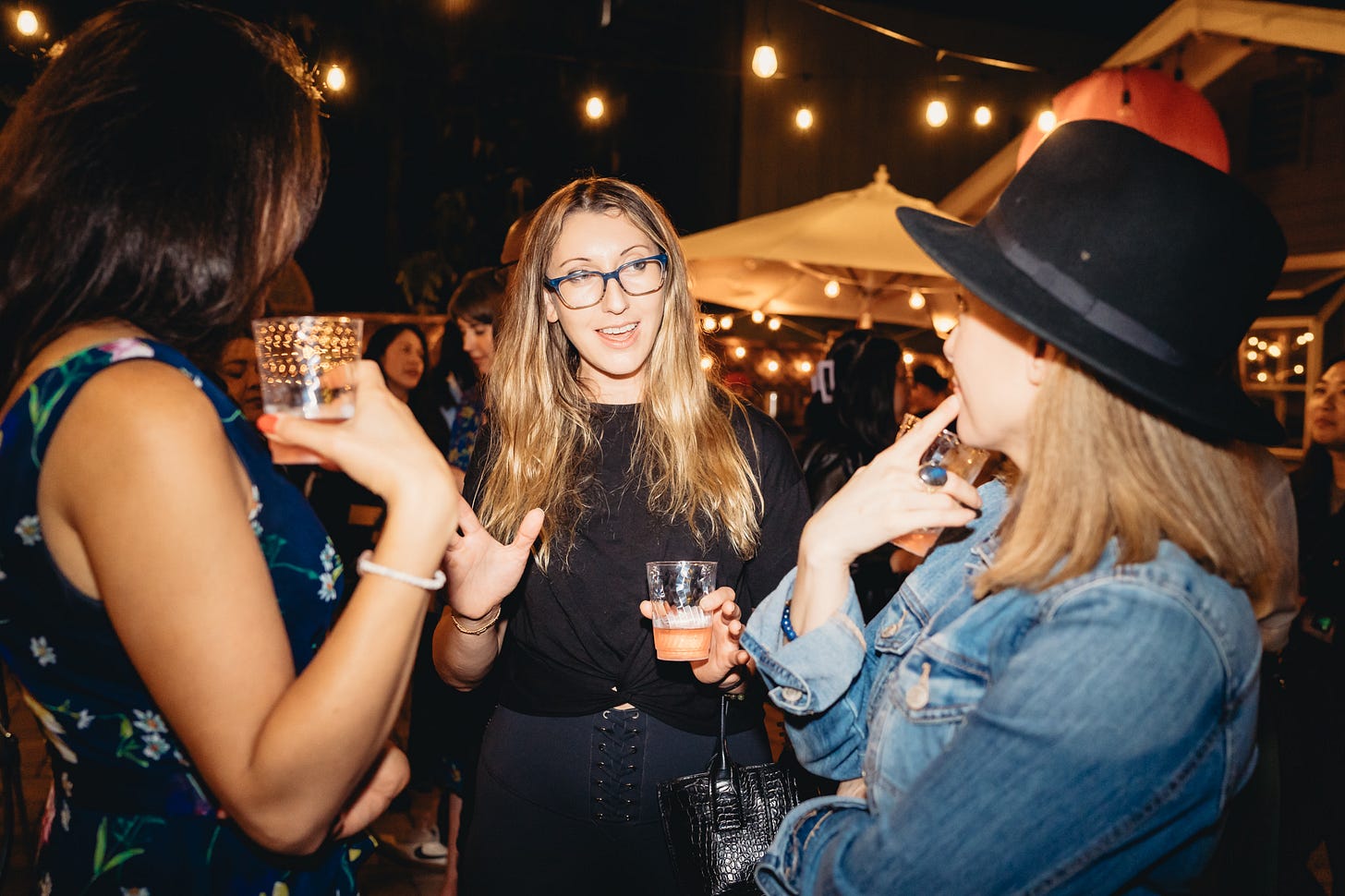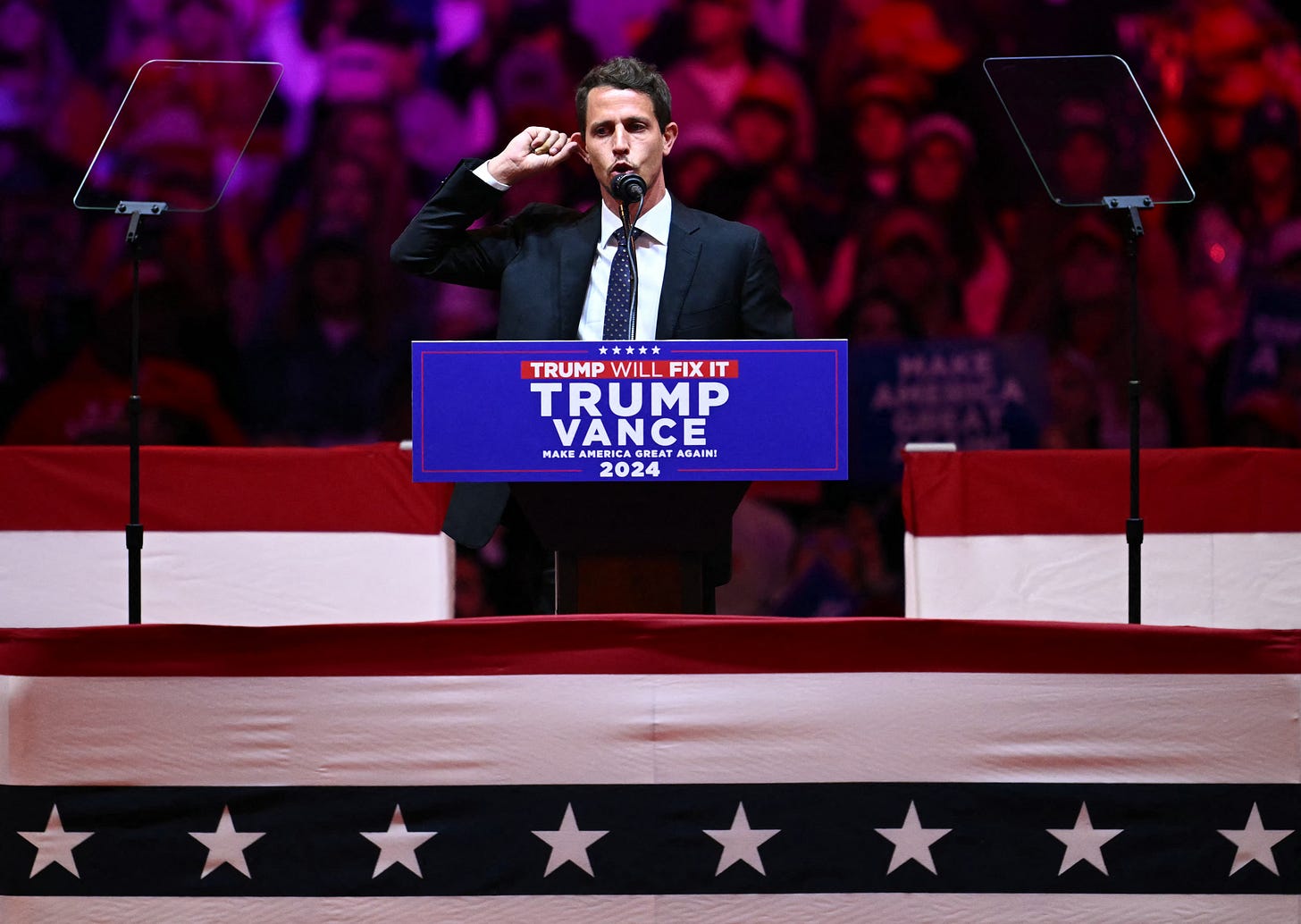The 'Chingonas' Fighting For Hollywood's $18B Latin Opportunity
Presidential candidates battle for Hispanic audience. So why doesn't Hollywood? Latina execs from Netflix, 20th Television, Hulu and more want to change that

This Ankler Feature is an 13-minute read.
“They wouldn’t even put me in the regular assistant pool.”
Yira Vilaro, VP of film and TV at the production company Fabula, is sharing the story of her first job in Hollywood, as an assistant at a major talent agency. “They immediately put me on the one Latin guy’s desk. He worked in a different building, in voiceover. It became clear they only hired me because they needed an assistant who spoke Spanish, and they didn’t have one. When I complained and said I wanted to go into the regular assistant pool, because I wanted to get on a talent or a lit desk, they wouldn’t trade me.”
“They wanted me to go to Mexico City and be a development exec there,” says a Latina who asked to be anonymous about the time she was changing jobs at a major streamer. “I said, story is story, but cultural nuance, I won’t be able to give you that. I didn’t grow up in Mexico, and I’m not Mexican.”
Although the Black Lives Matter and social movements of 2020 opened up more positions for underrepresented groups, it also resulted in performative behavior. “I started being addressed as ‘the Latina,’” says another woman who asked to share her story confidentially. “Anytime there was an external presentation about all the great work [the company] was doing, they’d be like, ‘Well, you have to be there.’ I felt like the college brochure when they look for the four different kids to put in every picture.”
This person says that at one point she became so frustrated that she lightened her hair, changed her wardrobe and tried to avoid the sun so that she would appear more white. “I know it’s kind of goofy to change your entire appearance, but I was like, If I’m a little bit fairer . . .” That phase, though, has passed, and she is now “letting my hair grow back to the dark, raven color that it is.”
The women who share these stories are all members of Latina Squad, a combination support group, networking resource, mentor program, affinity group and social club for Latin American women working in Hollywood. Founded in 2021 by Christine Davila, an independent producer and former development executive at Warner Bros., the network of 120 Latinas — most of whom work in development at studios, streamers and production companies — exists to counteract the challenges presented by the clubby nature of the entertainment industry.
Despite the fact that there are 62 million Latinos in the U.S., who constitute a quarter of TV and film consumption — and in the case of movies that really speak to them such as Terrifier 3 and Inside Out 2, Latin audiences exceed 40 percent of their fan bases — the Latino community remains wildly underrepresented in the entertainment industry. As McKinsey reported earlier this year and was amplified by Richard Rushfield’s coverage, Latinos represent less than 5 percent of leading roles in film and TV yet are almost non-existent in high-level executive ranks in the entertainment industry. McKinsey says the oversight constitutes an untapped $18 billion annual market opportunity.
This presidential election has amplified the growing power of Latinos as Donald Trump and Kamala Harris fight tooth and nail over the 20 percent of the population who identify as such, with stops at Univision and Spanish-language ads essential campaign tools. The “island of garbage” comments about Puerto Rico spoken onstage Oct. 27 at a Trump rally by comedian Tony Hinchcliffe prompted Bad Bunny, Jennifer Lopez, Ricky Martin and Aubrey Plaza to move their massive fan bases to Harris — and sent the Trump camp into damage control.
When I asked a Latina Squad point of contact about the events of the past weekend, the group provided me a statement: “As purveyors of artistic expression, we have thoughts on the ‘comedy act’ referring to a part of our community. The reality is, it’s obscene, ludicrous and destructive to disparage a group of people who greatly contribute to and influence American values, art and pop culture.”

So yes, politicians — and Latina Squad — know how crucial the Hispanic audience is. But Hollywood’s C-suites?
“Hollywood is leaving money on the table,” says Diana Mogollón, CEO of Rideback Rise, a nonprofit accelerator that focuses on up-and-coming minority writers and filmmakers. She’s not a Latina Squad member but has hosted events for the group at Rise. “We’re talking about a business that’s in decline, that is reinventing itself, and that has to figure out what the future is.”
As Ankler contributor Linda Ong wrote earlier this year, “Bicultural Latinos” are an “opportunity audience” where Hollywood could find a new source of growth. As Mogollón notes, “You see it every weekend. You see the power of POC audiences but specifically Latino families and Latino audiences that open the box office.”
Latino audiences are the number one or two audience segment for every new wide release, with strong Latin support powering everything from superhero movies (Deadpool & Wolverine) to animated kids films (Despicable Me 4) to romance (It Ends With Us) to horror (Terrifier 3).
“The numbers are there,” Mogollón adds. “When you see that, then you understand that this is an audience that we need to understand better.”
For the Latina Squad of creative executives in the business, that starts with them. In this story, you’ll learn:
How many Latinos occupy creative executive jobs at major streamers, studios and networks
Which major streamer has the most Latin executive talent
Which major streamer has zero
How the industry contraction is disproportionately affecting Latinas
What the Latina Squad is doing to enable the advancement of its employed members
How it’s supporting those who’ve lost their jobs


